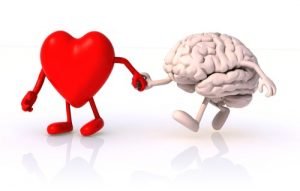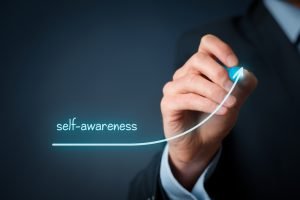So, the coronavirus pandemic has been a source of great stress for many people. emotional intelligence is key to keeping going. The fear and anxiety produced by this new disease is overwhelming and scary, and so is the ability this disease has to destroy families, from the poorest to the richest.
Much has been written about how to handle the crisis and how to improve our mental health. But today, more than ever, we need something more than the mere fact of practicing social distancing and using masks. We need to grow in our emotional intelligence. Being someone who behaves with high emotional intelligence has never been as important as it is in this unprecedented time.
Emotional intelligence is the ability to perceive, express, understand, and manage emotions. And, it is important, since the more we understand these aspects about ourselves, the better our spiritual and mental health, and social development will be during the pandemic.
Let me ask you today, are the decisions you make as a parent, spouse, son or daughter, employee or leader, generated by fear or despair, or by a person who has emotional intelligence? The way you answer this question will determine where you are going to be at the end of this pandemic.
Many studies by several universities from around the world have shown that a person’s success in many levels of life, such as intrapersonal, interpersonal, and, social, is determined by the level of emotional intelligence that person has. These studies reveal that 80 percent of a person’s success is determined by emotional intelligence and only 20 percent is determined by rational intelligence or his/her intelligence quotient.
What is the origin of the term emotional intelligence?
Many people attribute the concept of Emotional Intelligence to Daniel Goleman, but actually, this concept had been already elaborated on by other authors before Goleman made it popular in his book Emotional Intelligence in 1995.
It is believed that the first person to develop this line of thought about emotional intelligence was Edward L. Thorndike in 1920. Back then, he used the term social intelligence to describe the ability to understand or motivate other people.
In 1940, David WeshslerWechsler described the influence that human behavioral factors that were not determined by intellect had, and he made it clear that intelligence tests would not be complete until the factors influencing human beings that were beyond intellect and people’s relationships could be properly described.
Howard Gardner and its tribute to emotional intelligence
Unfortunately, these authors’ works went unnoticed for many years, until 1983, when Howard Gardner, in his book Multiple Intelligences: the practical theory, introduced the idea that intelligence indicators, such as intelligence quotient, do not fully explain cognitive ability, since they do not consider “interpersonal intelligence” (the ability to understand intentions, motivations, or other people’s desires), nor the “intrapersonal intelligence” (the ability to understand oneself, appreciate feelings, fears, and self-motivations).
The first use of the term emotional intelligence is generally attributed to Wayne Payne in his doctoral thesis: “A study about emotions: the development of emotional intelligence” (1985). However, this expression had already appeared before in texts written by Beldoch (1964) and Leuner (1966). Stanley Greenspan also proposed an emotional intelligence model in 1989, as well as Peter Salovey and John D. Mayer. But, of all these authors, the one who popularized the concept was Daniel Goleman in his above-mentioned book.
Now, let us leave this concept’s historical background behind. LetsLet’s talk about the importance to have high emotional intelligence in the midst of amid the pandemic.
According to Daniel Goleman, emotional intelligence entails five practical skills that must developed by someone who wants to grow in managing his/her emotions. Each of these 5 Practical Skills of Emotional Intelligence was also subdivided into different competencies. Let’s look at these abilities applied to the context of the pandemic.
1)Self-awareness
This means acknowledging one’s state of mind, resources, and intuition. This skill is key while we navigate through this pandemic, since without self-awareness, we cannot understand the emotions we are experiencing amid the crisis, the resources we are counting on to face the crisis, and, we will not have the necessary intuition to t make wise decisions.
Emotional competencies that depend on self-awareness
The emotional competencies that depend on self-awareness are:
- Emotional awareness: to identify our own emotions and the effects they may have on us and those around us. For example, the parent who does not have emotional awareness will not know how to identify the emotions his/her child is experiencing. In the end, he/she will not be able to teach his/her child how to manage emotions.
- Self-evaluation: to know our own strengths and limitations. Every human being has strengths and limitations. Many times, we focusefocus on the limitations we have that we neglect the strengths that have led us to where we are now. In the pandemic, it is imperative to assess our strengths and limitations and focus our energy on depending on our strengths and let ourselves be influenced by others who can help us with our limitations.
- Self-confidence: a strong feeling of self-worth and ability. The way you perceive and value yourself will allow you to navigate through troubled waters. If you do not trust yourself, no one will trust you either.
2) Self-regulation
the second skill relates to self-regulation. There may be no more essential psychological skill than the ability to resist an impulse. How many poor decisions have you made due to your lack of self-regulation? Unnecessary purchases, angry and bad moments that might have been avoided.
Besides, there are days in the midst of amid the crisis in which you get up with no motivation to do things, you want to stay in bed. But, self-regulation is what moves you to manage your state of mind and it pushes you to reach the goals you have set for that day.
The emotional competencies that depend on self-regulatio
– Self-control: to stay vigilant about disturbing emotions and impulses. There are toxic emotions we have to keep an eye on. Resisting the impulse to lose control is the basis for emotional self-control, since each emotion is a desire to act in the face of the problem and that desire is not always the right response.
– Trustworthiness: to keep adequate standards of honesty and integrity.
– Awareness: to take responsibility for our work performance. Many blame the economy or social distancing for their family crisis. Awareness helps you take responsibility for what you have to do when facing the crisis and stop blaming others for the things you do not have in your life.
– Adaptability: flexibility in managing changing situations. Everyone who has found a way to thrive during this pandemic has had to adapt themselves to changes. Adapting to Zoom meetings, to having to live with a family member that you use to seeing for only a few hours. Flexibility and adaptability are two elements that successful people have.
– Innovation: to be comfortable with new information, new ideas, and situations. While many companies have ended in bankruptcy, many others have grown in the middle of the crisis. What is the difference? The people in charge and the innovation competency. Ask yourself, how much innovation have you brought to your family in order to improve your emotional connection with your loved ones?
3) Motivation
It refers to the emotional tendencies that guide or facilitate meeting established goals.
- Impulse of achievement: the effort to improve or reach a standard of excellency in your family.
- Commitment: Developing a commitment to your family’s goals.
- Initiative: the availability to react to opportunities. Opportunities cannot be wasted. Your motivation will lead you to be aware of initiatives that might change your life or your family’s.
- Optimism: the persistence in chasing the goals despite obstacles and setbacks. This pandemic may have affected your family in several ways, but your optimism is what will allow you to rise from the ruins of despair and to continue towards the goals you have set for yourself.
4) Empathy
It is the other ability that will take you down a path to hope in the middle of the crisis. There are so many people who are in need around you right now, people who are looking for someone who can feel empathy for them. Empathy means being aware of other people’s feelings, needs, and concerns. It does not mean that the other person must think like us, but understand the way other people think and respect it. If we do the opposite, it could lead us to be self-centered.
Emotional competences that depend on empathy
Thus, the emotional competences that depend on empathy are:
- Understanding other people: to understand the feelings and perspectives of the family members. Maybe your children are exhausted from having online classes. A smart parent understands his/her children and will take advantage of this opportunity to teach them how to manage their emotions.
- To help others to blossom: being aware of the developmental needs of others and helping them strengthen their skills. In marriage and family therapy, we emphasize this aspect. We talk about discovering the needs the children and spouses have so we can help them grow. In the end, we all need the person we have beside us in order to survive.
- Orientation service: to anticipate, acknowledge, and satisfy your family’s real needs.
- Enhancing diversity: to cultivate opportunities to bring diversity to your family. Not everyone has to be like you. Accept diversity of opinions and ideas, and you will have a healthy family.
- Political awareness: to be able to read your family’s emotional currents and the power of the relationships they have among them.
5) Social skills
The last skill relates to the social field. It means being an expert in providing the desired answers to other family members. This goal depends on the following emotional skills:
- Influence: to come up with effective persuasion tactics.
- Communication: to know how to listen openly to others and to provide convincing messages.
- Conflict management: to know how to negotiate and solve disagreements within your marital and family relationships.
- Leadership: the ability to inspire and guide your family members.
- A catalyst for change: being a starter or administrator of new situations.
- A bond builder: to nurture and strengthen interpersonal relationships among family members.
- Collaboration and cooperation: to work with other family members in order to achieve shared goals.
- Team abilities: to be able to create synergy in the pursuit of collective goals in your family.
How have you put emotional intelligence into practice in the midst of the pandemic? Maybe you feel disappointed with yourself because you have not managed your emotions well. But remember, it is never too late to start.
Start today by developing each one of these skills so you can manage stress and distress in the midst of the pandemic. Remember that a fool gives full vent to his spirit, but a wise man quietly holds it back (Pro. 29:11).


 [vc_row][vc_column][vc_empty_space height=”25px”][ultimate_heading main_heading=”Emotional Intelligence Is Not Something Natural” margin_design_tab_text=””][/ultimate_heading][vc_empty_space height=”25px”][vc_column_text]
[vc_row][vc_column][vc_empty_space height=”25px”][ultimate_heading main_heading=”Emotional Intelligence Is Not Something Natural” margin_design_tab_text=””][/ultimate_heading][vc_empty_space height=”25px”][vc_column_text]

 [vc_row][vc_column][vc_empty_space height=”25px”][ultimate_heading main_heading=” Self-Awareness -When I Don’t Like What I See Inside of Me.” margin_design_tab_text=””][/ultimate_heading][vc_empty_space height=”25px”][vc_column_text]
[vc_row][vc_column][vc_empty_space height=”25px”][ultimate_heading main_heading=” Self-Awareness -When I Don’t Like What I See Inside of Me.” margin_design_tab_text=””][/ultimate_heading][vc_empty_space height=”25px”][vc_column_text]
 [/vc_column_text][/vc_column][/vc_row][vc_row][vc_column][vc_empty_space height=”25px”][ultimate_heading main_heading=”You Cannot Change What You are not Aware of.”][/ultimate_heading][vc_empty_space height=”25px”][vc_column_text]
[/vc_column_text][/vc_column][/vc_row][vc_row][vc_column][vc_empty_space height=”25px”][ultimate_heading main_heading=”You Cannot Change What You are not Aware of.”][/ultimate_heading][vc_empty_space height=”25px”][vc_column_text]